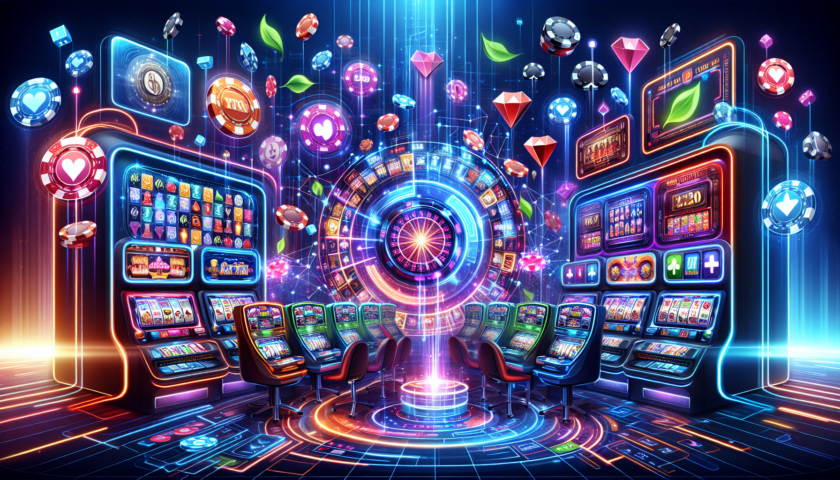Online gaming platforms have revolutionized the entertainment landscape over the past two decades. What was once a niche hobby is now a global phenomenon, with millions of users interacting, competing, and socializing through virtual worlds. However, the impact of these platforms goes far beyond simply playing games Hoki805. In this article, we’ll explore the evolution of online gaming platforms and how they have transformed from simple environments for gameplay into immersive social hubs, virtual economies, and creative outlets.
The Rise of Online Multiplayer Platforms
The early days of online gaming were marked by text-based games like MUDs (Multi-User Dungeons) and BBS (Bulletin Board System) games, where players connected via dial-up modems to engage in cooperative or competitive experiences. As internet speeds improved and gaming technology advanced, graphical MMOs (Massively Multiplayer Online games) like World of Warcraft and EverQuest opened new doors for social interaction and large-scale gameplay.
These early MMOs provided players with vast, persistent worlds, where they could team up with others to explore, battle, and trade. What set these platforms apart was the introduction of community features. Chat channels, guilds, and player-run economies allowed gamers to form lasting bonds, blurring the lines between online and real-world friendships. The social aspect was key to the platforms’ success and began to shape the culture around online gaming.
The Social Revolution: Streaming and Content Creation
In the mid-2010s, platforms like Twitch and YouTube transformed the gaming world once again, this time by introducing a new era of content creation. Gamers weren’t just playing games—they were broadcasting their experiences to millions of viewers, building communities through shared experiences.
The popularity of streaming services fostered a new generation of celebrity gamers, with streamers like Ninja and PewDiePie becoming household names. This shift also gave rise to esports, where competitive gaming became a legitimate career choice, and tournaments with massive prize pools attracted millions of spectators. Online gaming platforms such as Discord made it easier to communicate and connect with like-minded individuals, turning gaming into a social event.
Streaming and content creation turned online gaming into more than just a pastime; it became a platform for creativity. Players were not only consumers of content but creators as well. This trend paved the way for the rise of user-generated content (UGC) on platforms like Roblox and Minecraft, where users could create and share their own worlds, games, and experiences. These platforms democratized game development and made gaming more inclusive by allowing players of all skill levels to contribute to the community.
Virtual Economies and Blockchain Integration
As online gaming grew, so did the virtual economies within these platforms. Games like Fortnite introduced in-game purchases like skins, battle passes, and loot boxes, creating new revenue streams for developers and new opportunities for players to enhance their virtual identity. This market has expanded into the realm of blockchain technology, with the rise of NFTs (non-fungible tokens) and cryptocurrency integration.
Platforms such as Decentraland and The Sandbox are building virtual worlds where players can buy, sell, and trade digital assets using cryptocurrency. In these virtual spaces, players can purchase land, create unique digital items, and even establish businesses, creating entirely new economies. While the integration of blockchain technology is still in its early stages, its potential to revolutionize ownership, digital property rights, and gameplay is already being explored.
The notion of “play-to-earn” games is gaining traction, where players can earn cryptocurrency or digital assets by participating in games. This new dynamic blurs the line between leisure and work, opening doors to new forms of economic interaction and creating opportunities for financial independence through gaming.
The Metaverse: The Next Frontier
The concept of the metaverse has emerged as the next step in the evolution of online gaming platforms. While still in its infancy, the metaverse represents a fully immersive digital world where players can work, play, socialize, and create—all in a unified virtual environment. Companies like Meta (formerly Facebook) are heavily investing in virtual reality (VR) and augmented reality (AR) technologies to bring the metaverse to life.
In these virtual spaces, gaming is no longer limited to conventional platforms. Players can enter fully realized worlds through VR headsets, interact with others in real-time, and experience game mechanics that blend with everyday life. Imagine attending a concert in the metaverse, buying virtual clothes for your avatar, or exploring a fantasy world where you can do everything from solving puzzles to creating art—all while chatting with friends who live on the other side of the globe.
